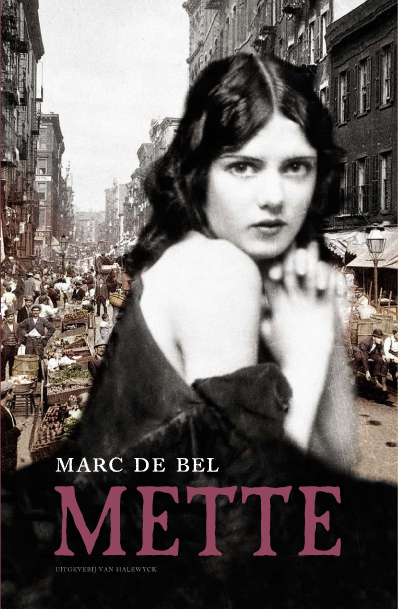
Mette is a fascinating and instructive story with a nice balance between drama, excitement and love in a convincing historical setting.
Flanders, 1920. The young Mette lives together with her father Fiel and her brother Berre in the village of Cruyshoutem. Due to poor harvests and increasing costs, it is becoming increasingly difficult to make ends meet. Just like for many Flemish people, distant America beckons, where dreams become reality. Mette wants nothing more than to cross the big lake to try her luck, but at the same time loses her heart to Dree, a boy from her village. The young woman faces a heartbreaking choice when she has to choose between her family and her great love.
The Bel describes the romantic developments both moving and credible. In his books for younger children it became clear that the author does not pursue modesty and that is also the case here. Love is not only looking deeply into each other’s eyes and holding hands. Mette reacts physically to Dree like any man of flesh and blood. No fussing or idealized situations here. From Marc De Bel a chapel can get a mischievous sound.
Flanders and America form the background of this story. In the first parts there is a very popular Flemish atmosphere with colorful characters. The scenes take place in front of the reader. The Bel does not shy away from the old Flemish words, which are accompanied by a glossary. The result is an atmospheric story combined with a strong sense of authenticity.
Mette also has an educational aspect as the book provides insight into the Red Star Line and life in Flanders and America after the First World War. It is full of fun facts (did you know that on Coney Island there were sex controllers who measured the length of women’s swimsuit and handed out fines to those who did not respect the rules?). This knowledge will continue to be dominated by the developments so that the whole does not turn into a boring history lesson.
Mette and her brother encounter a lot of misery (maybe sometimes a little too much) and do everything to survive. Thanks to a fluent style of writing, you can roam through the story and you have no choice but to turn the pages and discover the further course of Mettes, both physical and psychological. The chapters here and there are interspersed with the letters that Mette writes to her sweetheart Dree. A nice fact, although they sometimes interrupt the reading rhythm when Mette reports on events that have been described earlier.
An image interrupts the written text on a regular basis. It is always paintings, postcards or photos that are discussed in the story and that are otherwise difficult to imagine. They are a nice addition to a fascinating and instructive story with a nice balance between drama, excitement and love in a convincing, historical setting.
On Saturday, October 15 Inclusie Vlaanderen presented the 14th Inclusive Granger 2016 during the Trefdag Handicap in Leuven. Marc de Bel won convincingly with his young adult Mette, the second and penultimate book in the Pauwels trilogy with which Marc attracts an older audience of young people and adults. The prize was presented by Flemish Minister for Culture Sven Gatz, in the presence of Mr. Lodewijk De Witte, provincial governor Flemish Brabant, Mrs. Denise Vandevoort, Leuvens Schepen van Cultuur and other VIPs. With the Inclusive Granger, Inclusion Flanders awards fiction every year in which a character with a mental handicap plays an inclusive role.

